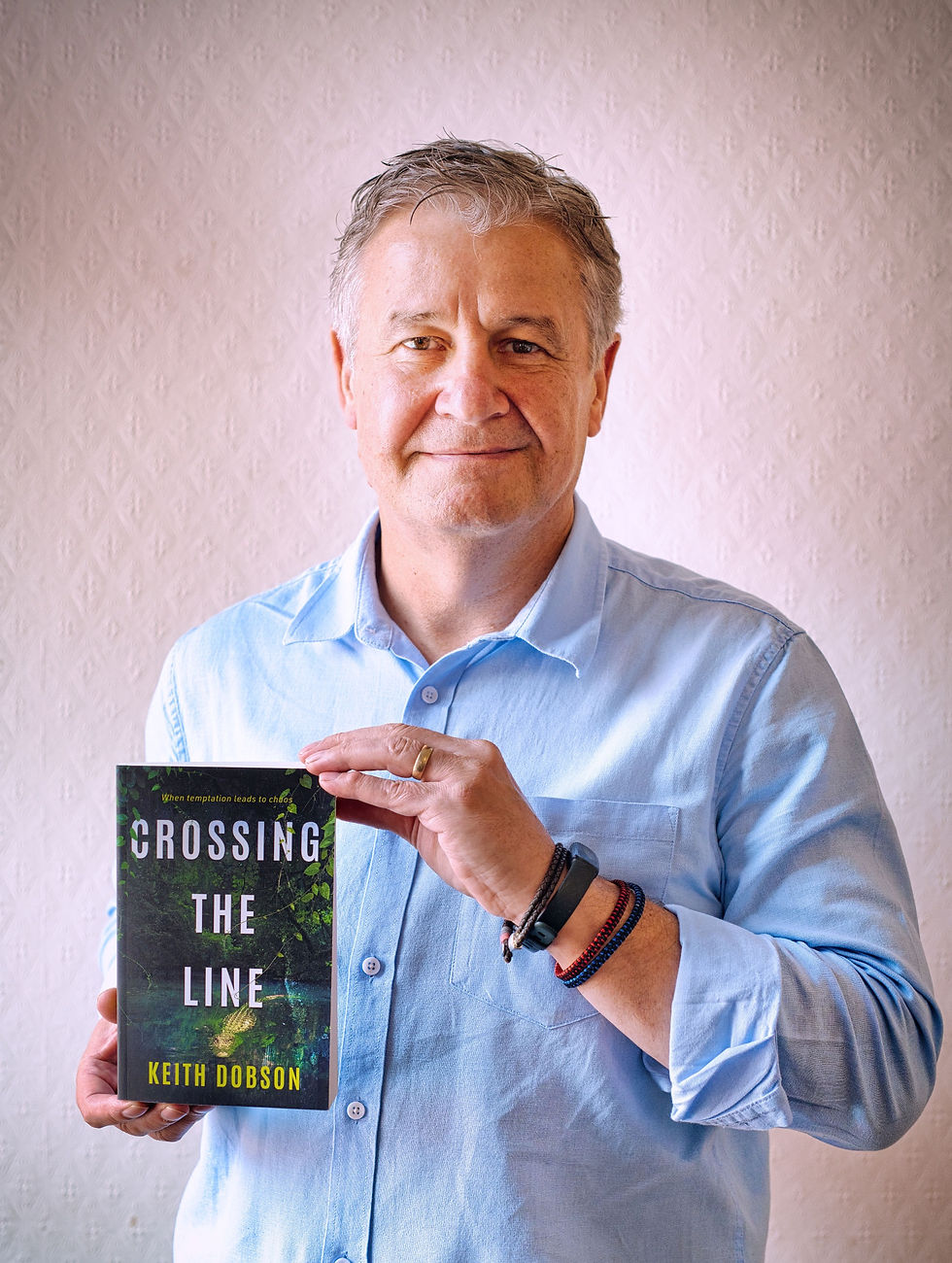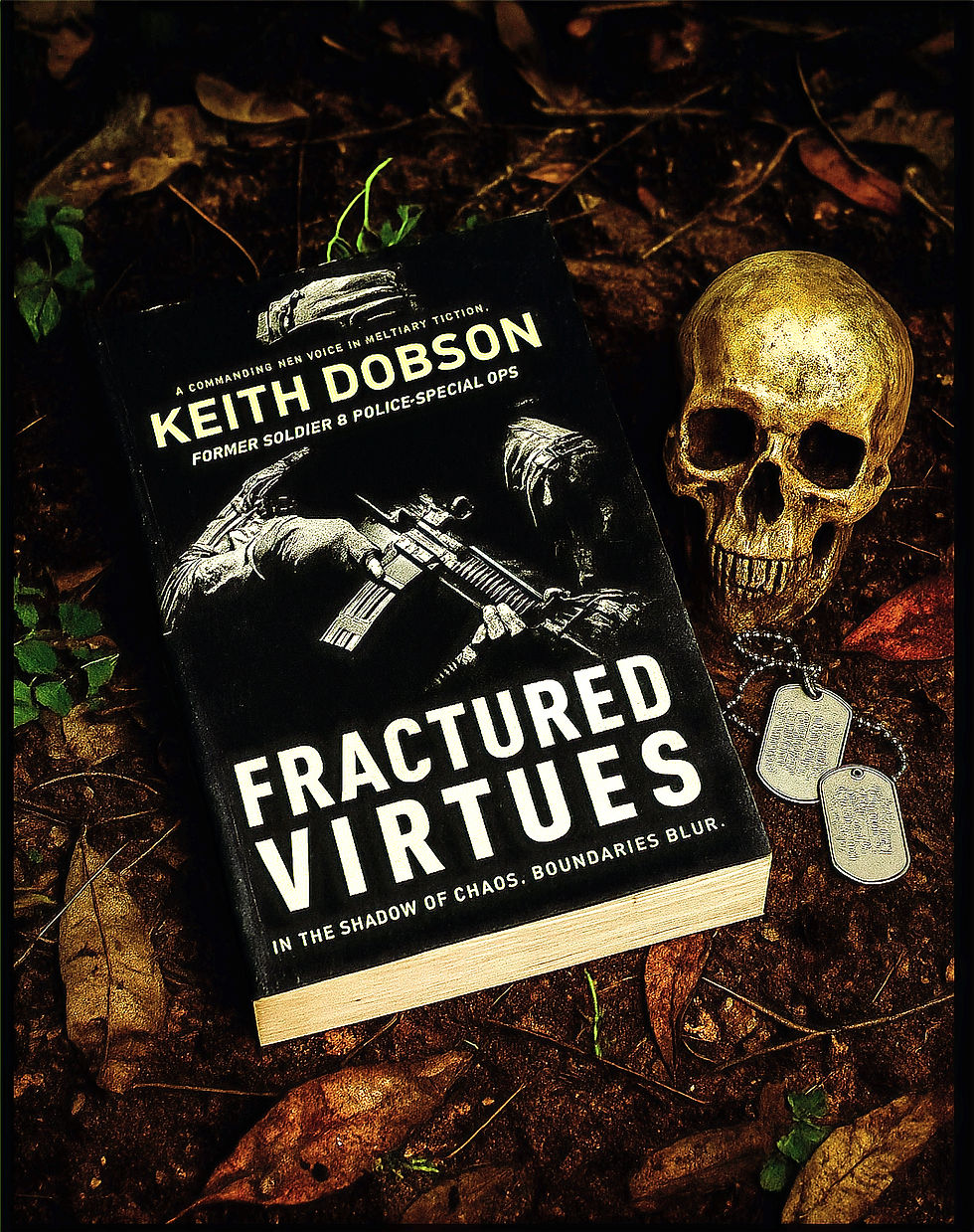The debate about writing a prequel before the main story.
- Keith Dobson

- Aug 20, 2025
- 3 min read
Updated: Aug 21, 2025
There's an interesting debate about whether to write a prequel before the main story. Many people enjoy exploring the background and origins of characters and events, which can add a richer layer to the overall narrative.
In 2022, I wrote my debut novel, Crossing the Line, which was published in August 2023. To my delight—and slight surprise—it took off in ways I hadn’t expected. Sales exceeded my highest expectations, reviews were glowing, and the book was picked up by national, regional, and local press with impressive momentum.

Even better, it landed on the shelves of both major chains and independent bookstores. I was inundated with requests for signed copies—an experience that, for a debut author, felt like stepping into literary heaven.
What I hadn’t expected was this: after readers reached the end—well, what I believed to be the end—I started getting requests for a sequel. It wasn’t just a few polite hints, but a steady chorus of people asking, “What happens next?”
It didn’t take long before I found myself tumbling back down the writer’s rabbit hole. Once you’ve done it once, picking up the pen again feels easier—or so I told myself. A sequel seemed like the natural next step; the continuation that readers were asking for.
Then came the twist.
Amid the calls for a sequel, another voice emerged—quieter, but persistent. It was mine. And it whispered that Crossing the Line wasn’t the main story at all. It was, in fact, the prequel to the story that should come next.

That idea opened up a new creative frontier. Reframing Crossing the Line as a precursor provided the chance to tell more, deepen the narrative, enrich the characters, introduce a new protagonist, and explore the questions that had been simmering in readers’ minds.
Still, I wrestled with the risks. Was it wise to have written a prequel before the main story had even been told? Would revealing too much, too soon, dilute the mystery, stall the momentum, or worse—disappoint?

In the end, I listened to that inner voice and redefined Crossing the Line as a precursor, which unlocked new creative territory, and in doing so, Crossing the Line found its rightful place—as the foundation for Fractured Virtues, the main story.
The Prequel Paradox
The prequel paradox is one of those literary conundrums that never quite settles. By definition, a prequel is published after at least one book in a series, yet its events take place before the original story. It’s a narrative rewind—a chance to explore the roots of characters, conflicts, and worlds that readers thought they already understood.
There is no universally correct approach to sequencing a main narrative and its prequel. The decision ultimately rests with the reader, whose tolerance for spoilers varies greatly. Some readers are very sensitive to the author’s intended chronology, preferring to discover each revelation in the order set by the narrative.
Others, myself included, are less concerned with narrative purity — often flipping to the final pages well before reaching the midpoint.
For me, encountering a detail prematurely, whether about a character or setting, rarely diminishes the overall experience. It simply recontextualises it.
So Where should you begin?


Well, that’s up to you.
But whichever path you choose, I hope the journey is worth it.
Fractured Virtues was written in 2024 and is about to be launched in September 2025.






Comments